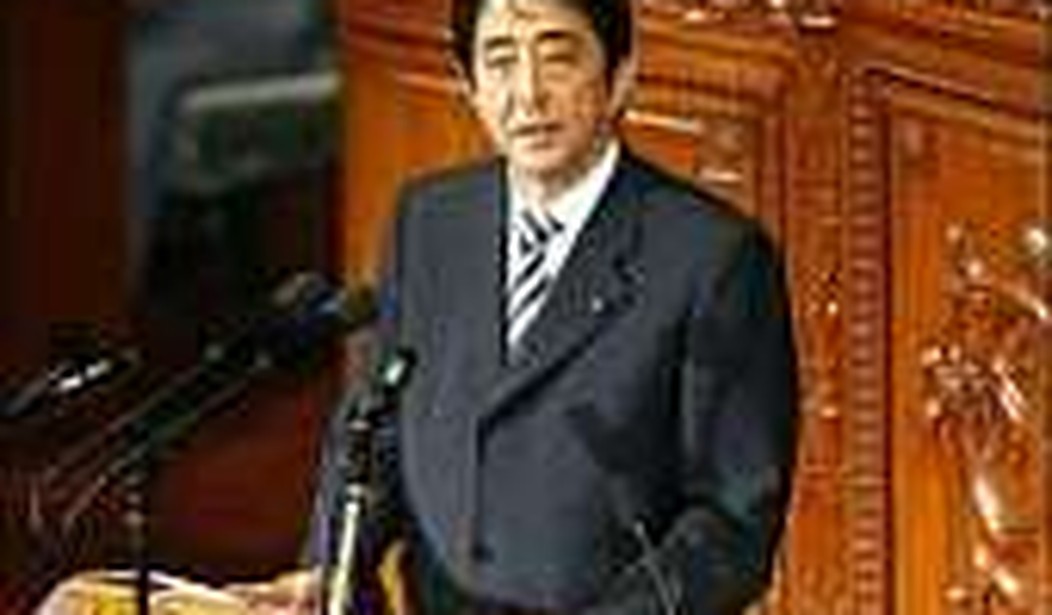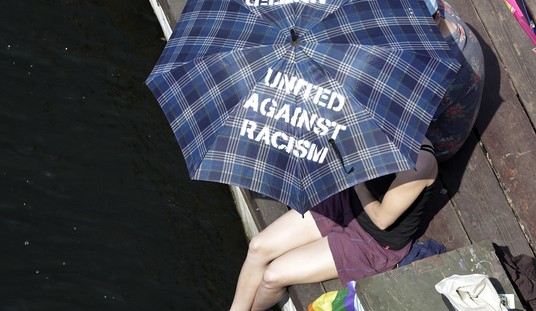It was bound to happen sooner or later. Coming off of a disastrous Upper House election loss on July 29th and having reshuffled his Cabinet only to fill it with nearly as many scandal-ridden ministers as he’d had in his first Cabinet, Prime Minister Shinzo Abe’s days were numbered.
Nevertheless, the news of Abe’s resignation seemed to take many, even in his own party, by surprise. Small parties, such as the People’s New Party, were blindsided by the news in press conferences. In his resignation speech, Abe said he invited his arch-rival, Democratic Party of Japan leader Ichiro Ozawa, to a policy chat and was snubbed. You know your time’s up when you’re the Prime Minister and the opposition leader doesn’t even want to talk to you.
Officially, Abe stepped down because he knew he didn’t have the clout to push through an extension to the anti-terrorism special measures law, which authorizes the Japan Self-Defense Forces mission in Afghanistan (refueling US ships and offering logistical support to the coalition forces there), so he stepped aside to allow a new Prime Minister, one with less baggage, to try to win Ozawa over to the cause.
Unofficially, Abe had used up all his chances. The DPJ was pushing for a general election and their main weapon was harping on the scandals and ineffectiveness of the Abe administration. We know that Abe was visited by a trio of heavy hitters from his own Liberal Democratic Party, including then-LDP Secretary General Nakagawa, on the night of July 29th and asked to step down. He declined to do so then.
One has to assume he wasn’t given the option this time.
Nearly as long as he was in the job, Abe was hounded by criticism that he lacked the experience and decisiveness necessary to running the kantei effectively. Older, more experienced LDP members in the Cabinet chatted amongst themselves as Abe spoke in Cabinet meetings, scandals were allowed to bloom and grow before Abe did anything about them, often defending crooked or incompetent Ministers as he dithered. Cabinet Ministers appointed by Abe were completely out of control, spewing forth gaffe after gaffe for the frst half of his tenure. Worst of all, he proved wholly unable to sell the public on his schemes. Even now, just two weeks shy of a year since he became Prime Minister, does anyone know what he meant by making a “Beautiful Country, Japan”?
The voting public certainly didn’t seem to be buying it. Abe showed his lack of political savvy when he kept droning on about the “Beautiful Country, Japan” even as voters grew increasingly angry about the scandalous mismanagement of pension records at the Social Insurance Agency.
In short, Abe didn’t get it and wasn’t likely to ever get it.
There’s only so much the ruling party can take.
Given the DPJ’s increased popularity and the momentum they gained from their big win on July 29th, there was a good chance they’d get the general election they wanted, and a good chance that the LDP would be unable to hold on to their majority in the Lower House.
While passing a renewal of the anti-terrorism special measures law was surely important, it was important largely in the context of the LDP’s fading power. If Ozawa’s DPJ had been able to stop a renewal, that, on top of the scandals and resignations in the Cabinet and the public’s generally low approval of Abe would have put the LDP in a terrible spot.
Abe’s resignation might have stolen a good bit of the DPJ’s thunder and might have made it a little more difficult for the opposition to get the general election they really wanted. We’ll see soon enough.
For now, the smart money seems to be on the recently-named LDP Secretary General, former Foreign Minister Taro Aso, to succeed Abe. This, in itself, would be a surprise considering that Aso is rather unpopular within the LDP and seemed to be getting farther from realizing his rather public dream of being Prime Minister. Last fall, he held a meeting to form his own faction and only drew 14 lawmakers, less than the minimum of 19 he needed to form a faction and far less than the 70 or 80 he’d need to form a faction with the clout to make him Prime Minister.
Aso’s clever, though. He knew he wouldn’t win in an open party election under normal circumstances, so being Secretary General at a time like this is his best chance ever.
The LDP has 30 days to elect a new president, who will then become Prime Minister.
Aso is not a shoo-in, though. It was in a situation like this that the dark horse Junichiro Koizumi won himself a cadre of supporters and surprised many by winning the LDP presidency in the Spring of 2001.
Exciting times, to be sure.
Garrett DeOrio runs Trans-Pacific Radio, a podcast channel based in Tokyo which provides regular review and analysis of Japanese and East Asian news and politics









Join the conversation as a VIP Member